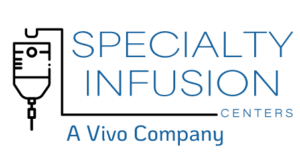Specialty Infusion is now Vivo Infusion.
Same Great People. Same Great Care.
It is our pleasure and privilege to welcome you to the Vivo community. We want to ensure your convenience as we transition our Specialty Infusion clinics to the Vivo Infusion processes. We invite and encourage you to explore the entire Vivo Infusion website.


